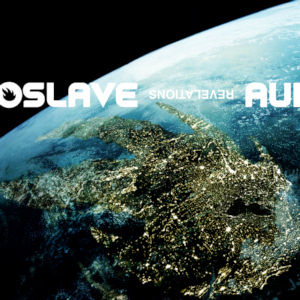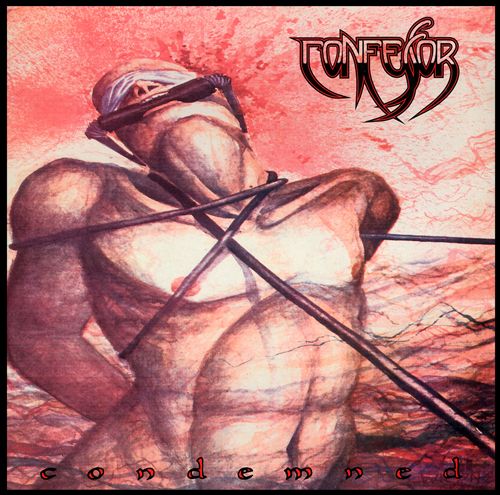
One thing that makes Saber Tiger stand out is the fact that their English lyrics are better than those of most Japanese bands. Starting with their 2011 release ‘Decisive’, the band has been extensively collaborating with lyricist Fubito Endo, who also wrote of all the lyrics for their new album ‘Obscure Diversity’.
“Back in 2007, I came across a blog post from (founding guitarist) Akihito Kinoshita”, Endo explains. “Saber Tiger was at a low point in their career at the time. They had no record deal, no management, not even a singer. I had been a fan of Saber Tiger since junior high, when they hadn’t even released their major label debut yet. So when I saw on AK’s blog that he needed a lyricist, I decided to contact him. I was already a professional musician and producer at the time, so I hoped I could help him out.
I watch a lot of American and British movies and tv series. When I hear some cool words or phrases, I always write them down in my Saber Tiger memos. I have a long list of these phrases. When I receive demo tracks from the guys, I always check the memo and see if I can get a vision of what I want to talk about.”
The basic concept of ‘Obscure Diversity’
“For the previous trilogy of ‘Decisive’, ‘Messiah Complex’ and ‘Bystander Effect’, my lyrics were mostly about war, conflict, crime, life and death. I think I have written enough about these concepts, so I decided to write from a more personal perspective for this particular album. I never went to a war zone and I never pulled the trigger. I’ve never even seen someone die in front of me except for the natural deaths of my relatives. So these stories were all fictional for me. The basic concept of ‘Obscure Diversity’ was to write more about personal tragedies in our lives.”
Daguerreotype Of Phineas Gage
“This was the final song written for this album. ‘The Crowbar Case’ already existed and Takenori (Shimoyama, singer) came up with the idea to kick off the album with a kind of gothic choir. The vocal recording is actually a demo. We originally planned to hire professional opera singers to emulate the parts on the demo, but my demo recording went so well that we decided to keep the recording for the final product.
The title refers to one of the two silver prints that were left of Phineas Gage after his eye and part of his brain were taken out as part of a tragic accident. An iron rod pierced through his head. The fragmented Latin words don’t mean anything by themselves, but they are supposed to depict a fragmental image of what his life and death are all about.”
The Crowbar Case
“The story of Phineas Gage was really interesting for me. Before his accident, he was known as a very decent, hard-working man and a trustworthy boss. Then he had a tragic accident that made him lose part of his brain. Miraculously, he managed to survive, but when he recovered, he came back with a completely different personality. He was told to have become extremely violent and selfish. When I read this story, I began to think: which part of him made him the person he was? And who was the real Phineas Gage in the first place?”
The Worst Enemy
“’The Worst Enemy’ was the very first song we wrote for this album. These lyrics set the basic concept for the whole album. Jealousy is our worst enemy. But if you’re human, you can’t live without it. No matter how decent you are, everybody suffers from jealousy. If you are faced with it, maybe you can control it or at least learn how to deal with it. But if you try to deny it, you will eventually be controlled by it.”
Stain
“Sometimes, people do things that never really go away. Even if you try to hide it or even erase them, these things will always leave a stain inside you. It is possible that everybody else forgets about it, but since you are the one who did it, you are never going to forget. You simply have to deal with it and learn to live with it. That is the basic concept of ‘Stain’.”
Beat Of The War Drums
“When we went to Germany to mix ‘Decisive’ with Tommy Newton, Akihito had a stroke. He nearly died there. He had to be brought back to Japan on a stretcher in first class with a doctor present. Though he was super lucky to have survived, he has been suffering from pretty severe depression ever since. I wrote the lyrics to ‘Beat Of The War Drums’ to kind of cheer him up.
If people work too hard, it will eventually break their physical condition, after which it will break their minds. That’s when the war drums start beating in your head. That is the state of mind of hard-working people. I can relate to the feeling myself. When I was producing the vocals for ‘Paragraph IV’, I didn’t sleep anywhere near enough for two or three weeks. After that, I was sick for two months.”
Distant Signals
“’Distant Signals’ is very different from the usual Saber Tiger style. It was a challenge to write these lyrics, because the music is so complicated, but I enjoyed it very much. This particular demo was the first song hibiki (bassist) wrote for Saber Tiger. It sounded so spacey! I felt like I was flying through space, from planet to planet. Therefore, the lyrics were inspired by the idea of quantum mechanics: we always take a shower in an immense amount of possibilities. Your actions will define the truth of the next moment.
For the previous albums, I always wrote about perfect despair. If you look deep into the abyss of despair, you will eventually find one small fragment of hope. I never wrote purely positive lyrics, but I wanted to write something really positive for this hibiki song, because I felt this positive energy from him. So I think the concept of believing in yourself and trusting your own actions really fits the song.”
The Shade Of Holy Light
“This is the very first ballad Machine (guitarist Yasuharu Tanaka) wrote for Saber Tiger. This is another story of a decent guy in an unfortunate situation. The guy in this song worked too hard covering for his colleagues and working overtime. One night, he works late and when he drives back home in the dark, during heavy rainfall, over the speed limit, he runs over somebody. He ends up in jail, where he reminisces his life. Nobody forced him to be nice; he decided by himself to help somebody out. That resulted in him killing someone. The idea is that the strongest light always creates the darkest shadows. Even if you are a good man. This happens all the time in our lives. The world is an unfair place.”
Permanent Rage
“Saber Tiger has had a long career and because they are such kind guys, they have often been hunted by predators. A lot of people show up to them, act all nice and end up ripping them off. They have lost a lot of money over the years simply because they are not businessmen, because they trust these people. They always tend to show up again though, because they think they will still be an easy prey. When that happens, you have to face them and say: I know what you are trying to do. Say that again and look me in the eye.
I have always loved the phrase ‘M.O.’. I’m a big fan of American legal dramas and often hear this phrase ‘same M.O.’ used by detectives or lawyers. I have always wanted to use it. When I heard the demo, there was a part where it just fit perfectly. That was the first idea for the song.”
Seize Your Moment
“Literally, ‘Seize Your Moment’ is very positive. This is your chance, your opportunity, so you have to grab it. Everything has two sides though. If somebody shows up and says: you have no problem, I will take care of everything for you, they might be trying to set you up. If somebody really cares about you, they don’t always say nice things. Sometimes they say something that is difficult for you to hear. Seize Your Moment is about seeing both sides of everything.”
Divide To Deny
“Simply put, this one is about people who fear people with a different point of view. The reason why people attack others is fear. They fear something they don’t understand, so they try to attack it. But it’s impossible to understand everything. It’s only natural if there are things that you don’t understand. Being different is not a crime. You don’t have to understand it, but there is no need to attack anyone. You can just leave the people you don’t understand alone.
This idea is also reflected in the title ‘Obscure Diversity’. Diversity is kind of a trendy word these days. Everyone is talking about it, but a lot of people are simply talking about diversity because they are afraid to get attacked for being politically incorrect. The other extreme is trying to hide your actual incorrectness behind a screen or an anonymous handle. Living with something you don’t necessarily understand is true diversity.”
Paradigm And Parody
“As professional creators, we always suffer to create something original. On the other hand, it’s impossible to create something new, as most possibilities have already been done by someone at some point. All that we can do is change the combination or the color. That’s how you can leave your signature. We dedicate our whole life to these kinds of small changes, but some people have no problem being a copycat.
I don’t say that everything I create is completely original. Of course I have been influenced by my favorite artists and artists that I admire. But when I see people who just copy and paste, I always think: how can you sleep at night doing this as your profession?
My favorite lines from these lyrics are: you know there are ten thousand ways to be right / you know it’s so easy, a matter of pride / and what you want to be known for when you die. I don’t believe in life after death, so after I die, I only live in someone else’s memory. I don’t want to be remembered as someone who just stole or copied from other artists. At least I tried to create something to make people happy.”
The Forever Throne
“’The Forever Throne’ was inspired by a real life incident. A few years ago, Tetsuya Komuro, a very famous Japanese music producer, was caught trying to sell the rights to songs he didn’t own. He was never prosecuted for fraud, because his label owner paid a lot of money to prevent that. However, he was already all over the news, so he had to talk about it. He said that the reason he did it was to make his wife happy until the day his fraud was discovered. He knew he was going to lose everything he created, but he took the risk to make his wife feel like a queen.
When I heard this story, the image of an empty throne came to mind. Spending a crazy amount of money on something meaningless. I feel in this story, Komuro kind of was the emperor in the story of The Emperor’s New Clothes. It is impossible to own everything. Not even a millionaire can buy the sky or the sun. And happiness is not defined by how much you own. I really believe that everyone who experiences great happiness also has to face big sadness. At the end of the day, it’s all in balance.”





